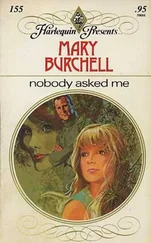Джумпа Лахири - Nobody's Business
Здесь есть возможность читать онлайн «Джумпа Лахири - Nobody's Business» весь текст электронной книги совершенно бесплатно (целиком полную версию без сокращений). В некоторых случаях можно слушать аудио, скачать через торрент в формате fb2 и присутствует краткое содержание. Жанр: Проза, short_story, на английском языке. Описание произведения, (предисловие) а так же отзывы посетителей доступны на портале библиотеки ЛибКат.
- Название:Nobody's Business
- Автор:
- Жанр:
- Год:неизвестен
- ISBN:нет данных
- Рейтинг книги:3 / 5. Голосов: 1
-
Избранное:Добавить в избранное
- Отзывы:
-
Ваша оценка:
- 60
- 1
- 2
- 3
- 4
- 5
Nobody's Business: краткое содержание, описание и аннотация
Предлагаем к чтению аннотацию, описание, краткое содержание или предисловие (зависит от того, что написал сам автор книги «Nobody's Business»). Если вы не нашли необходимую информацию о книге — напишите в комментариях, мы постараемся отыскать её.
Nobody's Business — читать онлайн бесплатно полную книгу (весь текст) целиком
Ниже представлен текст книги, разбитый по страницам. Система сохранения места последней прочитанной страницы, позволяет с удобством читать онлайн бесплатно книгу «Nobody's Business», без необходимости каждый раз заново искать на чём Вы остановились. Поставьте закладку, и сможете в любой момент перейти на страницу, на которой закончили чтение.
Интервал:
Закладка:
The next morning Paul was awakened by the noise of a car door closing. He went to the window and saw the trunk of a taxi being pressed down by the driver's hand. Sang had left a note on the kitchen table: she was going to London to visit her sister. Paul, thanks for yesterday, it said. Along with this was a signed check for her portion of the rent.
For a few days nothing happened. He collected her mail. The bookstore called to ask where she was. Paul told them she had the flu. Two weeks later the bookstore called again. This time it was to fire her. The third week, Farouk began to call, asking to speak to her. He didn't identify himself, didn't press Paul when he said, night after night, "Sang's not in." He was polite to Paul, in a way he had never been before, saying thank you, that he'd try later. Paul relished these calls. He liked depriving Farouk of the knowledge of where Sang was. But then, one day when he called, Heather, holed up in the house that week to study for an exam, happened to answer and said, "She's left the country," putting an end to Farouk's calls.
At the end of the month, the rent was due. Paul and Heather didn't have enough to cover it. Instead of contacting Sang's parents, he looked up her sister's phone number in London on an old telephone bill. A woman answered who sounded just like her.
"Sang?"
The phone switched hands, and a man came on the line. "Who is this?"
"This is her housemate in America, in Brookline. Paul. I'm trying to reach Sang."
There was a long pause. After some minutes had passed, he wondered if he ought to hang up and try again. But then the man picked up the phone. He didn't apologize for the delay. "She's indisposed at the moment. I'm sure she'll appreciate your call."
Charles came that weekend to pack up Sang's things. He tossed her clothes into garbage bags, stripped the futon of its sheets, and asked Paul to help him put it out on the sidewalk. Wrapping the framed Indian miniatures in newspaper at the kitchen table, he told Paul he'd talked to Sang on the phone, said that she'd be living in London with her sister through the summer. "You "know, I kept telling her to leave him. Can you believe, I never even met the guy?"
Charles loaded up the back of his truck, until all that was left of Sang in the house was the sage and mole paint on the walls of her room and the hanging plant over the dish drainer. "I guess that's everything," Charles said.
The truck disappeared, but Paul stood awhile longer, looking at the houses lining the street. Though Charles was her friend, she had not told him. She had not told Charles that Paul had known for months about Deirdre. That night at Farouk's apartment, after washing up in the bathroom, Sang had got down on all fours and crawled into Farouk's coat closet, weeping uncontrollably, at one point hitting herself with a shoe. She'd refused to emerge from the closet until the policeman lifted her by the armpits and dragged her forcefully from the apartment, telling Paul to see her home. Tiny pieces of flower petals and leaves were still stuck in her hair. She had taken Paul's hand in the elevator, and all the way back to the house. In the car she had cried continuously, with her head between her knees, not letting go of Paul's hand, gripping it even as he shifted gears. He had put the seatbelt on her; her body had been stiff, unyielding. She seemed to know, without looking up, when they had turned in to their road. By then she had stopped crying. Her nose was running. She wiped it with the back of her hand. A light rain had begun to fall, and within seconds the windows and the windshield seemed covered with scratches, similar to the ones she'd inflicted on herself, the drops beading up in small diagonal lines.
The day Paul passed his exams, two of his professors took him to the Four Seasons bar for a drink. He had many drinks that afternoon, ice-cold martinis on an unseasonably warm spring day. He drank them quickly on an empty stomach and little sleep the night before, and suddenly he was drunk. He had answered every question, passed with honors the three-hour ordeal. "Let's pretend it never happened," his committee told him, alluding to his previous embarrassment. After they left him, shaking hands a final time, patting him on the back for good measure, he went to the men's room, splashed water on his face. He pressed a plush white towel to his temples, sprayed himself with some cologne from a leather-encased bottle by the sink. Returning to the lobby, the reception desk, the massive bouquets of flowers, the well-dressed guests, the brass carts piled with expensive luggage — all of them had spun round him like a carousel, then floated one by one in an arc across his vision. For a while he stood watching these images appearing and fading like fireworks, not wanting them to end. He wanted money all of a sudden, enough of it to march up to the desk and request a room, a big white bed, silence.
Outside, he turned a corner, crossed a street. He walked toward Commonwealth Avenue, so different at this end from the way it was by the university. Here it was an elegant, tree-lined boulevard, flanked by spectacular homes, and benches on which to sit and admire the architecture. The cross streets progressed alphabetically, Berkeley, Clarendon, Dartmouth. He walked slowly, still drunk, looking now and then for a taxi to take him home. At Exeter Street, he noticed a couple on a bench. It was Farouk and a woman, willowy but haggard. Her bony nose was a little too large for her face. Her slim legs were crossed. Her eyes, a limpid turquoise blue, were topped with mascara-coated lashes, and she blinked rapidly, as if irritated by a grain of sand.
There was an empty bench across from them. Paul walked to it and sat down. Loosening his tie, he looked directly at Farouk. For this man, Deirdre had called a perfect stranger, made a fool of herself. For this man, Sang would rush from the house, had refused all her suitors. Because the suitors didn't know her, they hadn't had a chance. "It's not love," she used to say. They still called for her now and again, their voices eager, their intentions plain. "Do you know her number in London?" some asked, but Paul had thrown it away. His head tilting this way and that way, he studied Farouk carefully. Paul had lain on top of this man. He had felt those legs, that chest, beneath his own, had smelled his skin and hair and breath. It was a knowledge he shared with Sang and Deirdre, a knowledge each had believed to be her own. Farouk and the woman exchanged glances. Let them, Paul thought, smiling, a quiet snicker escaping him. There was nothing Farouk could do to stop him; not with this new woman at his side. He slouched down, his head against the wood of the bench now, allowing the afternoon sun to warm his body, his face. He was tempted to stretch out. He closed his eyes.
He felt a poke in the side of his arm. It was Farouk, standing in front of him.
"You should be grateful I didn't sue," Farouk said. He spoke precisely, yet without rancor, as if he were making casual conversation.
Paul rubbed his eyes behind his glasses, displacing them. "What?"
"You've damaged my shoulder. I had to get an MRI. I may need surgery." The woman, now standing a few feet behind Farouk, said something Paul was unable to hear.
"He should know," Farouk said to the woman, his voice rising unpleasantly. Then he shrugged, and they walked off together. There was something curious about the way they were walking, together and yet with a space between them. It was only then that Paul noticed a small yellow dog at the end of a very long leash, stretched taut in the woman's hand, pulling her along the path.
Интервал:
Закладка:
Похожие книги на «Nobody's Business»
Представляем Вашему вниманию похожие книги на «Nobody's Business» списком для выбора. Мы отобрали схожую по названию и смыслу литературу в надежде предоставить читателям больше вариантов отыскать новые, интересные, ещё непрочитанные произведения.
Обсуждение, отзывы о книге «Nobody's Business» и просто собственные мнения читателей. Оставьте ваши комментарии, напишите, что Вы думаете о произведении, его смысле или главных героях. Укажите что конкретно понравилось, а что нет, и почему Вы так считаете.





![Джумпа Лахири - Whereabouts [calibre]](/books/384312/dzhumpa-lahiri-whereabouts-calibre-thumb.webp)






